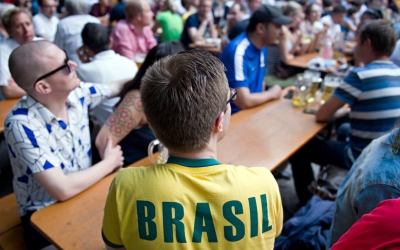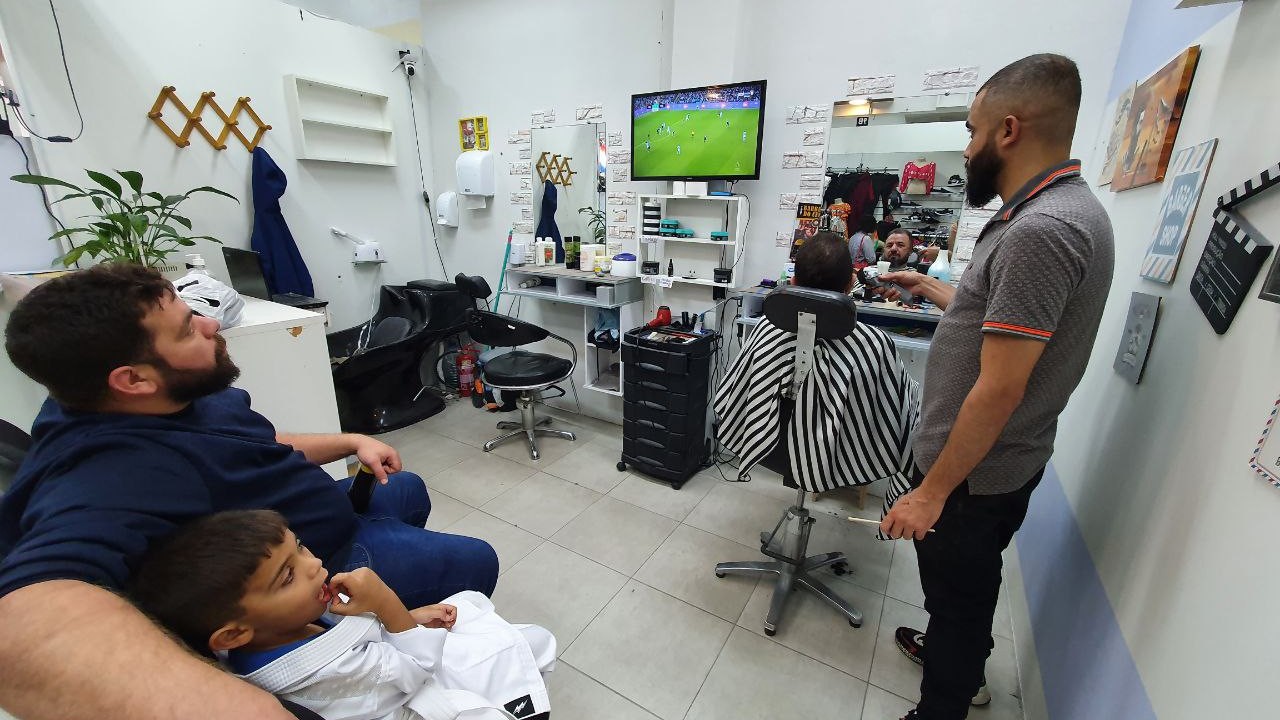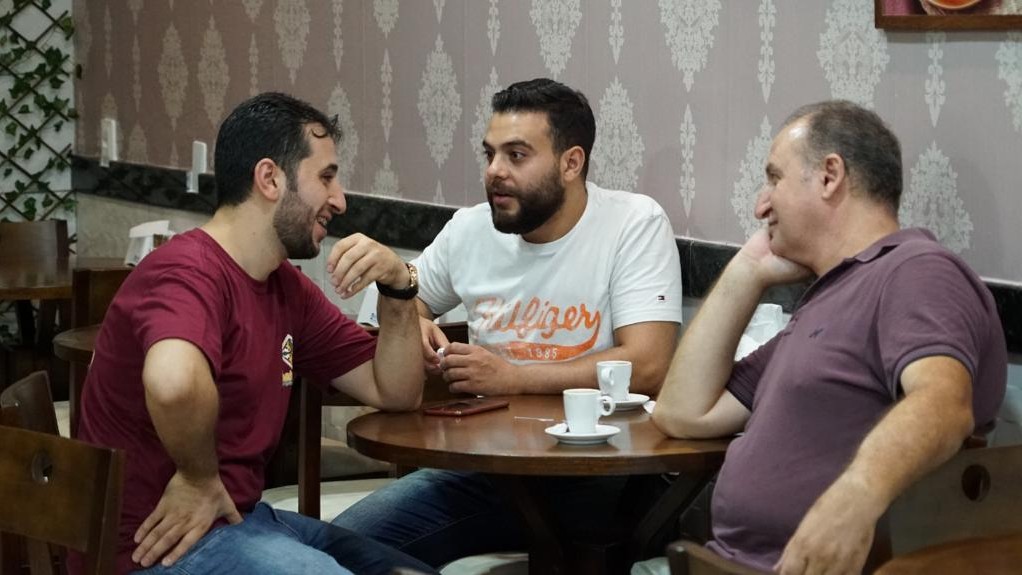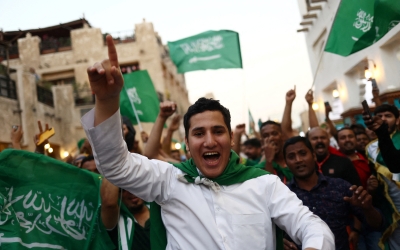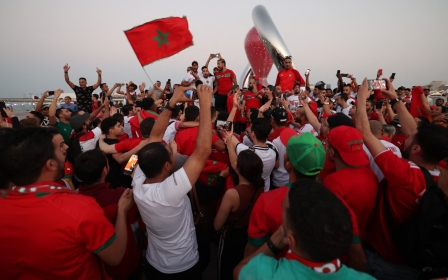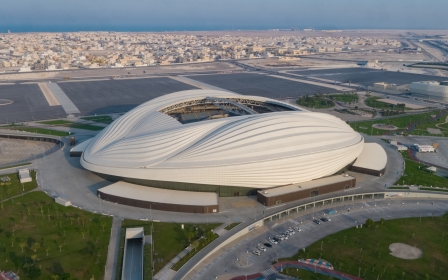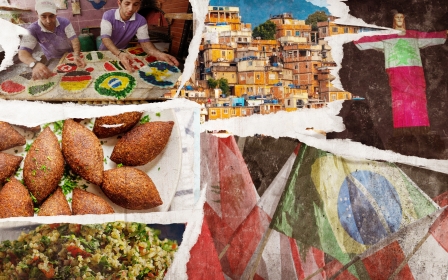Qatar World Cup: Love for the Selecao runs deep among Brazil's Arab community
Brazil is known across the world for its love of the beautiful game.
Boasting its own unique footballing style and extraordinary flair, the South American nation has produced some of the greatest players to ever grace the global sport.
From Pele to Socrates and Ronaldo to Neymar, they've won tournament after tournament. Their style of play is so dominant they've become the most revered footballing nation in the world.
As they head into the Qatar World Cup with the aim of dethroning France as world champions, the five-time winners will be buoyed by the support they're received from Arab fans in the Middle East.
'For years, we were stuck between Syria and Lebanon in bad conditions - no country accepted us except Brazil. So I think it's our duty to support Brazil in the World Cup'
- Taha Yasin, Arab Brazilian
The Selecao have seen their hotel in Doha swamped by boisterous fans, many of whom have been seen chanting and cheering into the early hours as they try to motivate the Little Canaries.
New MEE newsletter: Jerusalem Dispatch
Sign up to get the latest insights and analysis on Israel-Palestine, alongside Turkey Unpacked and other MEE newsletters
But it's also back at home where the Brazilian team are getting wishes of support from Arab fans.
In Florianopolis, some 1,300km south of the capital Brasilia, Taha Yasin, the owner of a small barber shop, said a sixth World Cup would reinvigorate ordinary Brazilians who had endured years of rising poverty, unemployment and the devastating Covid-19 pandemic.
Since 2018, millions of Brazilians have been pushed below the poverty line and the government's Covid-denial and failed policies resulted in more than 686,000 deaths, second in number only to the United States.
"Football is our passion, part of our Brazilian identity. It's more than a sport and it's found everywhere you go," Yasin told MEE.
"We suffered a lot during these two years: poverty, unemployment and the coronavirus pandemic, so winning the World Cup means a lot to us."
Returning the love
In 2013, Yasin was one of several Palestinian-Syrian asylum seekers who fled to Brazil due to the ongoing conflict.
Since the start of the Syrian war, Brazil has welcomed more than 3,000 Syrians, making it the country hosting the highest number of Syrian refugees in Latin America.
Yasin said that Brazil had not only welcomed Arabs from Syria but those fleeing repression from several other corners of the Arabic-speaking world. So supporting the national team felt natural and was a way to say "thank you" to their adopted country, he said.
"For years, we were stuck between Syria and Lebanon in bad conditions - no country accepted us except Brazil. So I think it's our duty to support Brazil in the World Cup."
According to Moustafa Mouradi, who usually comes to Yasin's barber shop to watch domestic football matches, Brazil was among only a handful of countries that offered refugees ID documents, passports, free health services and social assistance until they were able to support themselves.
"Of course, I will support the country which has been helpful and cooperative. Brazil is a country for all. When I got a Brazilian passport, it was like a new birthday. And now, if Brazil gets the World Cup title, it will be like another birthday."
Football can unite people
Whether Brazilians are playing at the club level or taking part in international tournaments, the game manages to bring together people regardless of race, gender, age, identity, and economic status.
Everywhere in Florianopolis, store clerks, employees and ordinary people can be seen celebrating Brazil's World Cup appearance and have donned the famed yellow and green.
With a carnival-type atmosphere in the streets, parents have given their children additional time to play street football while they chat about upcoming matches and squad sheets among other things.
'The first Arab World Cup offers us a unique opportunity to celebrate football, engage Arabic culture and celebrate humanity'
- Sabri Hussien, Brazilian of Palestinian origin
Albaraa Hamou, the owner of Arabesque, an Arabic-themed cafe, said Arab immigrants felt a part of the festivities and would regularly gather around cafes and restaurants with Brazilians to watch games.
At first glance, his cafe sticks out as a foreign anomaly, but it's famous not only for Arabic food, sweets and coffee but also for the football and Arabic commentary blaring in the background.
"Even people who don't watch the games suddenly become football fans during the World Cup, start giving opinions about the national team, and begin expecting their team victory," Hamou told MEE.
"Brazil stops when the football team is playing. Stores, banks, and schools, even some market close. Even the news revolves around the World Cup."
An Arab World Cup
With the World Cup being held in the Middle East for the first time, Arab fans are soaking up the festive atmosphere.
Qatar qualified for the World Cup as the host country, and this will be the first time the Gulf state plays in the tournament.
Meanwhile, Iran, Morocco, Saudi Arabia and Tunisia are among the tournament's most experienced nations, with six World Cup appearances each.
The hosts have promised to put on a show and have invested more than $200bn in building seven new stadiums, a new metro system, roads, a new airport and other major development projects.
Sabri Hussein, a Brazilian of Palestinian descent, expressed a sense of pride that the region was finally hosting a major sporting event.
"We are so proud that the first World Cup ever to be held in the Middle East will be unlike any that has come before. Qatar is home to many unique museums and art spaces. Arab communities in Brazil support Qatar, and I hope that Arab teams will give their best during this tournament," Hussein said.
"The first Arab World Cup offers us a unique opportunity to celebrate football, engage Arabic culture and celebrate humanity."
Still, Hussein said that Brazil will be keen to let their football do the talking when they face Serbia in their World Cup opener on Friday.
In Brazil, football isn't just sport, it's a way of life, he added. More than that, if you talk to any person in the street, they’ll tell you this country is the centre of the footballing universe.
Middle East Eye delivers independent and unrivalled coverage and analysis of the Middle East, North Africa and beyond. To learn more about republishing this content and the associated fees, please fill out this form. More about MEE can be found here.


